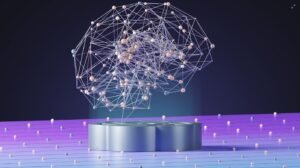Where Is AI Today?
Artificial Intelligence (AI) has rapidly advanced in recent years, revolutionizing various industries and transforming the way we live and work. From voice assistants like Siri and Alexa to self-driving cars and recommendation algorithms, AI is becoming increasingly integrated into our daily lives. But where is AI today? Let’s explore the current state of AI and its exciting developments.
Key Takeaways
- AI is transforming industries and reshaping how we live and work.
- Advancements in AI have led to the rise of voice assistants, self-driving cars, and recommendation algorithms.
- The deployment of AI is not without challenges, including ethical concerns and the need for continuous improvement.
Artificial Intelligence encompasses a wide range of technologies and applications aimed at simulating human intelligence and decision-making. Machine learning, a subset of AI, enables computers to learn from and analyze vast amounts of data to make predictions and decisions. *AI has the potential to revolutionize healthcare by improving diagnosis accuracy and personalized treatment plans.* With AI-powered medical imaging, doctors can detect diseases earlier and more accurately, potentially saving lives.
AI in Healthcare
In healthcare, AI is already making significant strides. An example is IBM’s Watson, which uses natural language processing and machine learning to analyze medical literature and assist doctors in making diagnoses and treatment recommendations. *AI-powered models can help predict the outbreak of diseases and allocate resources more efficiently for preventive measures.* AI is also utilized in drug discovery, analyzing immense datasets to identify potential drug candidates faster and more accurately, reducing the time and cost of bringing new medications to market.
AI in Finance
The finance industry is another sector benefiting from AI’s advancements. AI algorithms assist in fraud detection, risk assessment, and algorithmic trading. These technologies analyze vast amounts of financial data to identify patterns and anomalies, reducing fraud and improving security. *Sophisticated AI models can predict market trends and make investment recommendations, aiding financial institutions and individual investors in making more informed decisions.* AI-powered chatbots also provide personalized customer service, improving the overall user experience.
AI in Retail
Retailers are leveraging AI to enhance customer experiences and optimize operations. One popular application is recommendation systems, which suggest products based on customer preferences and buying behavior. This increases customer satisfaction and drives sales. AI-powered chatbots handle customer inquiries, providing instant responses and improving customer service. *Retailers are also deploying computer vision systems to track inventory, reducing stock-outs and optimizing supply chain management.* Personalized pricing, dynamic pricing algorithms driven by AI, offer individualized discounts to customers in real-time, increasing sales and customer loyalty.
The Future of AI
AI continues to evolve rapidly, with exciting possibilities on the horizon. As AI technologies advance, we can expect further breakthroughs in autonomous vehicles, natural language processing, and robotics. However, ethical concerns surrounding AI, such as privacy, bias, and job displacement, must be addressed to ensure its responsible and equitable implementation. *With continuous research and development, AI has the potential to shape the future profoundly and positively impact various aspects of our lives.*
| Advantage | Description |
|---|---|
| Improved Diagnosis | AI can enhance accuracy and speed in diagnosing diseases. |
| Personalized Treatment | AI enables tailored treatment plans based on individual patient data. |
| Early Disease Detection | AI-powered medical imaging techniques assist in early detection of diseases. |
| Application | Benefits |
|---|---|
| Fraud Detection | AI algorithms identify patterns and anomalies, reducing fraud in financial transactions. |
| Algorithmic Trading | AI models enable automated trading decisions based on real-time market data. |
| Risk Assessment | AI helps financial institutions assess and manage risks more effectively. |
| Application | Advantages |
|---|---|
| Recommendation Systems | AI-powered recommendations improve customer satisfaction and drive sales. |
| Inventory Management | Computer vision systems optimize inventory tracking and supply chain management. |
| Personalized Pricing | Dynamic pricing algorithms based on AI offer tailored discounts, boosting customer loyalty. |

Common Misconceptions
AI is at the same level as human intelligence
One common misconception about AI is that it has reached the same level of intelligence as humans. However, this is not the case. While AI has made significant advancements in various fields, such as image recognition and natural language processing, it still lacks the general intelligence and understanding that humans possess.
- AI is limited to specific tasks and lacks the ability to generalize.
- AI does not possess emotions or consciousness like humans do.
- AI still struggles with understanding context and making complex decisions.
AI will replace human jobs entirely
Another misconception is that AI will completely replace human jobs, leaving people unemployed. While AI has the potential to automate certain repetitive tasks and improve efficiency, it is unlikely to completely replace humans across all industries.
- AI is better suited for tasks that involve data analysis and pattern recognition.
- Many jobs require human creativity, critical thinking, and interpersonal skills, which AI currently cannot replicate.
- AI is more likely to augment human capabilities rather than replace them entirely.
AI understands and processes information like humans
There is a misconception that AI understands and processes information in the same way humans do. While AI can process vast amounts of data quickly, its approach to understanding and interpreting information is fundamentally different from humans.
- AI relies on mathematical algorithms and statistical models to process information.
- AI lacks human-like intuition and cannot rely on past experiences or emotions to make decisions.
- AI requires large datasets and training to perform tasks, whereas humans can learn and adapt more flexibly.
AI is infallible and unbiased
AI is often viewed as infallible and unbiased when making decisions, but this is far from the truth. AI systems are only as good as the data they are trained on, and they can inherit the biases and limitations present in that data.
- AI can unintentionally amplify existing social biases, leading to discriminatory outcomes.
- AI lacks moral and ethical judgment, making it crucial for human oversight and responsibility in its application.
- AI can make mistakes and incorrect predictions due to limitations in its algorithms and training data.
AI is a threat to humanity
There is widespread fear that AI will eventually become a threat to humanity, leading to the extinction or subjugation of humans. While the potential risks associated with AI should be acknowledged and managed, it is important to approach this topic from an informed perspective.
- AI is a tool created and controlled by humans, who are ultimately responsible for its use.
- There are ongoing efforts to ensure the ethical development and responsible deployment of AI technologies.
- Rather than a threat, AI has the potential to bring numerous benefits and advancements to various areas of society.

The History of AI
AI, or Artificial Intelligence, has a rich history that dates back to the 1950s. It has evolved significantly over the years, and today it encompasses various technologies and applications. The table below showcases the key milestones in the development of AI.
Applications of AI
AI is being used in various industries and sectors to enhance productivity, efficiency, and decision-making processes. The table below highlights some of the notable applications of AI across different domains.
AI in Healthcare
AI is transforming the healthcare industry in numerous ways, from assisting in diagnostics to drug discovery. The table below showcases some remarkable examples of AI applications in the field of healthcare.
Social Impact of AI
The increasing presence of AI in society raises important ethical and social considerations. The table below illustrates the potential social impacts of AI and its implications for various aspects of our lives.
AI in Business
AI technologies are reshaping the business landscape, enabling organizations to streamline processes, improve customer experiences, and gain a competitive edge. The table below highlights some key applications of AI in business settings.
AI in Finance
The finance sector has embraced AI to optimize financial processes, detect fraud, and provide personalized financial services. The table below presents some notable applications of AI in the finance industry.
AI in Transportation
The transportation sector is undergoing a profound transformation with the integration of AI technologies. They are contributing to the development of autonomous vehicles, traffic optimization, and predictive maintenance. The table below illustrates how AI is revolutionizing transportation.
Challenges in AI Development
The development and deployment of AI come with a unique set of challenges and considerations. The table below outlines some of the key challenges faced by AI developers and researchers.
Ethical Considerations in AI
AI raises significant ethical concerns related to privacy, bias, accountability, and transparency. The table below highlights some of the ethical considerations associated with AI technologies.
The Future of AI
Looking ahead, the future of AI holds immense potential and promises exciting advancements in various domains. The table below presents some predicted future trends and possibilities in the field of AI.
AI has come a long way since its inception, revolutionizing numerous industries and touching various aspects of our lives. From healthcare to transportation, AI has showcased remarkable capabilities and potential. However, its development and implementation also come with challenges and ethical considerations that must be carefully addressed. With continuous advancements and innovation, the future of AI looks promising and holds the key to unlocking even greater possibilities.
Where Is AI Today? – Frequently Asked Questions
What is AI?
AI, or Artificial Intelligence, refers to the development of computer systems capable of performing tasks that typically require human intelligence, such as speech recognition, decision-making, problem-solving, and learning.
What are the main applications of AI today?
The main applications of AI today include virtual assistants, such as Siri and Alexa, recommendation systems, fraud detection, autonomous vehicles, image and speech recognition, and natural language processing.
How is AI being used in healthcare?
AI is being used in healthcare to improve diagnostics, provide personalized medicine, assist in surgery, help manage and analyze patient data, and develop new drugs and treatments.
What industries are adopting AI?
A wide range of industries are adopting AI, including finance and banking, healthcare, retail, manufacturing, transportation, agriculture, and customer service.
What are the ethical concerns surrounding AI?
Some of the ethical concerns surrounding AI include job displacement, privacy issues, bias in algorithms, security risks, and the potential for AI to be used for malicious purposes.
What are the challenges in implementing AI?
Challenges in implementing AI include the need for large datasets, access to computational resources, the lack of interpretability of deep learning models, ethical considerations, and the integration of AI systems with existing infrastructure.
How is AI impacting employment?
AI has the potential to automate routine and repetitive tasks, which may lead to job displacement in certain industries. However, it is also creating new job opportunities in areas such as AI research, data analysis, and AI system development.
What is the future of AI?
The future of AI holds immense potential for further advancements. We can expect to see increased integration of AI in various industries, advancements in machine learning algorithms, improved natural language processing, and the development of more intelligent and human-like AI systems.
Is AI capable of becoming self-aware?
Currently, AI systems are not capable of true self-awareness. While they can perform complex tasks and mimic human-like behaviors, they lack consciousness and genuine self-awareness as experienced by humans.
How can I learn more about AI?
To learn more about AI, you can explore online resources, enroll in AI courses and certifications, attend AI conferences and workshops, and engage with AI communities and forums to stay updated with the latest advancements and research in the field.




